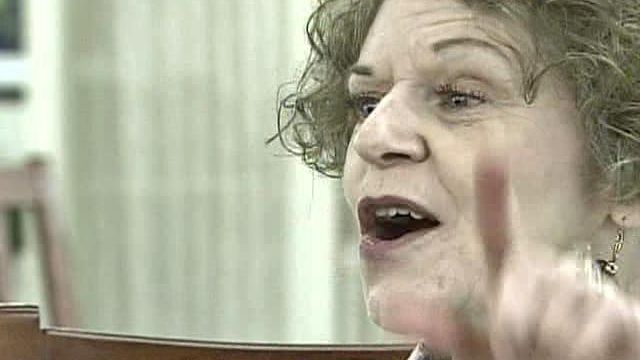Local Therapy Group Aims to Help Those With Aphasia
Special group therapy may help people with Aphasia to relearn ways to communicate, either through words, writing or gestures.
Posted — UpdatedFor people with brain injury from stroke or other causes, it can happen all the time with almost every word. It's a communication disorder called Aphasia.
Special group therapy may help people with Aphasia to relearn ways to communicate, either through words, writing or gestures.
Among the members of a therapy group at WakeMed is a former N.C. State public speaking professor, a former truck driver and a beloved mother, Elizabeth Cox.
She described her story in halting speech, "I had a stroke, and thanks be to God, I survived."
Cox's stroke lead to Aphasia.
"If you have Aphasia, it's like having a file cabinet that has all of your information and your knowledge stored and it gets tipped upside down," said Maura Silverman, an Aphasia therapy specialist.
With Aphasia, the words are scrambled, but the intellect is intact, according to Silverman. That's what Cox's daughter, Julie Stickler, said she knew all along.
"We knew that mom was still the same person. There was no question about that,” she said.
Stickler said her mom's greatest progress came after joining the Triangle Aphasia Project's therapy group at WakeMed. During their sessions, they discuss current events. In another session, one member tried to communicate the name of an old TV show, the Odd Couple.
The group assembled the bits and pieces of information guided by Silverman.
"They're a couple? Are they married? They're not married? "asked Silverman.
"Oh, no, no, no," said Ray Camp, the retired public speaking professor.
The word associations came slowly - two men, one who is neat. A word then occurred to Cox.
"Opposite,” she said.
Indeed, the Odd Couple were opposites. Then, one group member shouted, "The Odd Couple."
"The Odd Couple," several others repeated.
Most were familiar with the comedy and would have come up with the name immediately before their stroke.
Cox visibly struggled to put thoughts into words. Then, as she tried to speak about her love for music, she broke out in song. "Joy to the world, the Lord tis come," Cox sang.
In their session that meets every Wednesday for five hours, Cox is with others who understand. Family members are encouraged to attend so they can learn the same tricks to spur communication.
Stickler said it has made a difference.
"We have just seen phenomenal progress," she said
• Credits
Copyright 2024 by Capitol Broadcasting Company. All rights reserved. This material may not be published, broadcast, rewritten or redistributed.





